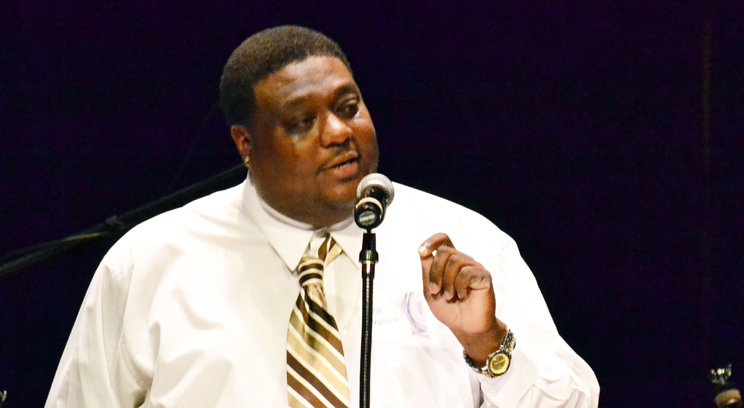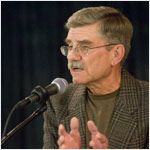Will Wallace attended the University of St. Thomas more than a decade ago and never completed his degree. But I couldn’t be more proud of the former Gangster Disciple, who attributes much of his success to his two years here: the courses he took, the people he met and the opportunities he had.
Earlier this month, a dinner and fundraiser celebrated the success of Emerge and its North 4 Program, a pilot project to provide training, employment, housing and counseling for at-risk youth. Wallace is North 4’s on-call mentor, father figure and spiritual confessor.
For the past two years, the program has involved about 30 gang members or gangster wannabees from 14 to 21 years old; six were on probation, 10 served time in juvenile detention and 13 had friends or family members who were murdered. To date, all of Wallace’s charges are still alive and the majority are still working.
“I’m trying to tell ’em there’s hope out there if they can build a work record,” Wallace says. “I’ve got my phone on 24/7 to provide advice and counsel, a good word and the plain truth. I tell these guys if I did it, you can do it.”
What Wallace did was turn his life around almost 20 years ago, from a life of slinging drugs and running wild to working hard and standing tall. In the early ’90s, he came under the influence of Bobby Hickman, a teacher and counselor at The City, an alternative school where Wallace graduated.
That’s where I met him when I took my broadcast reporting class over to talk with students and staff who saw and lived a life far different than the Tommies’. Wallace was always forthcoming and plain talking.
Then one day, he came over to St. Thomas and announced he wanted to go to college. I was astounded and, at first, not very hopeful. He didn’t know much about computers, a foreign language or basic math.
But I underestimated his resolve. Wallace took a summer remedial course called Bridge for Success and enrolled as a freshman in 1997. He worked full-time, went to class daily and raised a family. He lasted two years before being placed on academic probation – a victim of beginning German and shrinking resources.
The day Wallace got the letter announcing he was on probation, he sat on a bench in The Quad and cried. Former sociology professor Steven Lybrand and I sat with him. He didn’t get back to St. Thomas, but he didn’t forget the university.
“I learned so much there,” Wallace said. “Until I took the history course, I never knew much about the history of my people; I’d never heard of the underground, slave railroad. I loved sociology courses, where I could talk about my street background. I was on a student-produced, morning TV show and I shot video of a Saturday football game.
“Yeah, you could say I got a pretty full experience at St. Thomas.”
Last year, Wallace brought a dozen of his Emerge young men to campus so they could look around a place where academics, books and classes rule the day. “Some of my guys,” Wallace said, “had never been across the bridge from Lake Street to Marshall Avenue.”
They have now, thanks to Wallace. His story is, to me, an example of what Father Dennis Dease meant years ago when he said the university should not only be in the city, but of the city.
Will Wallace is in the city and his work is stuff of the soul.








